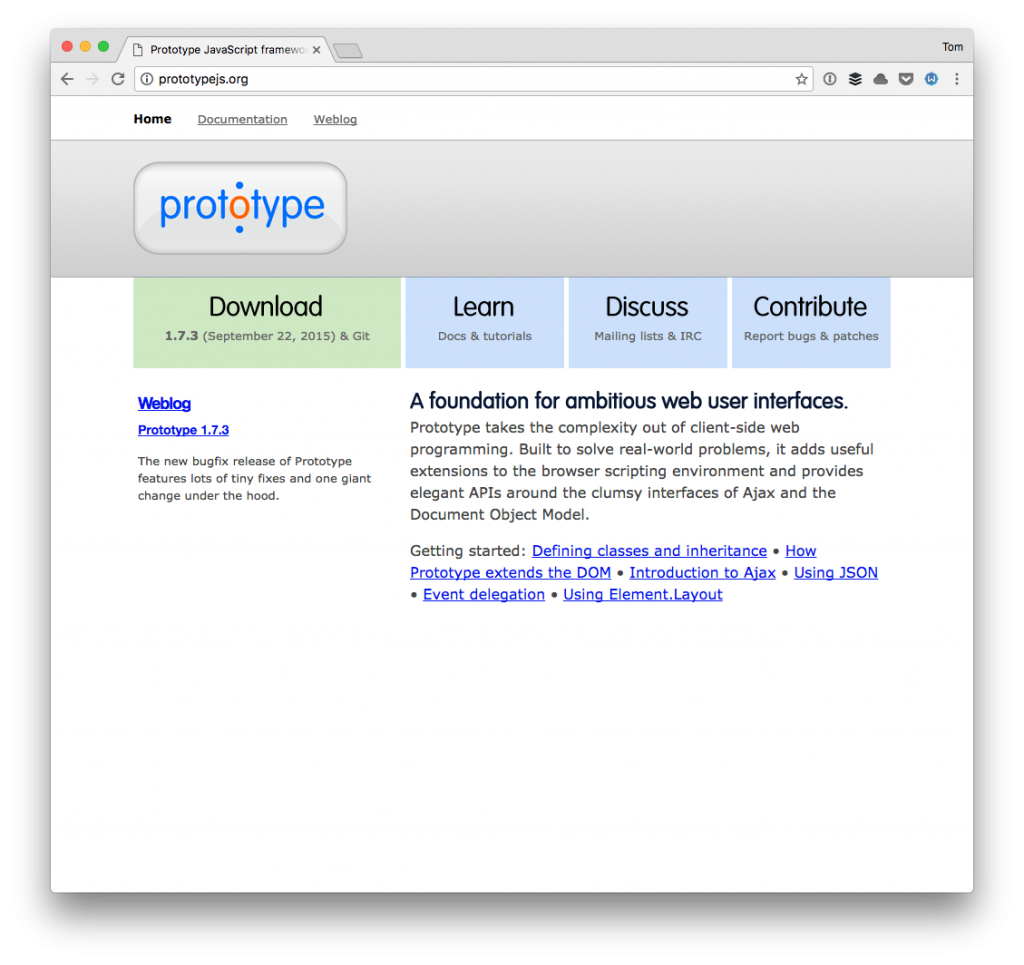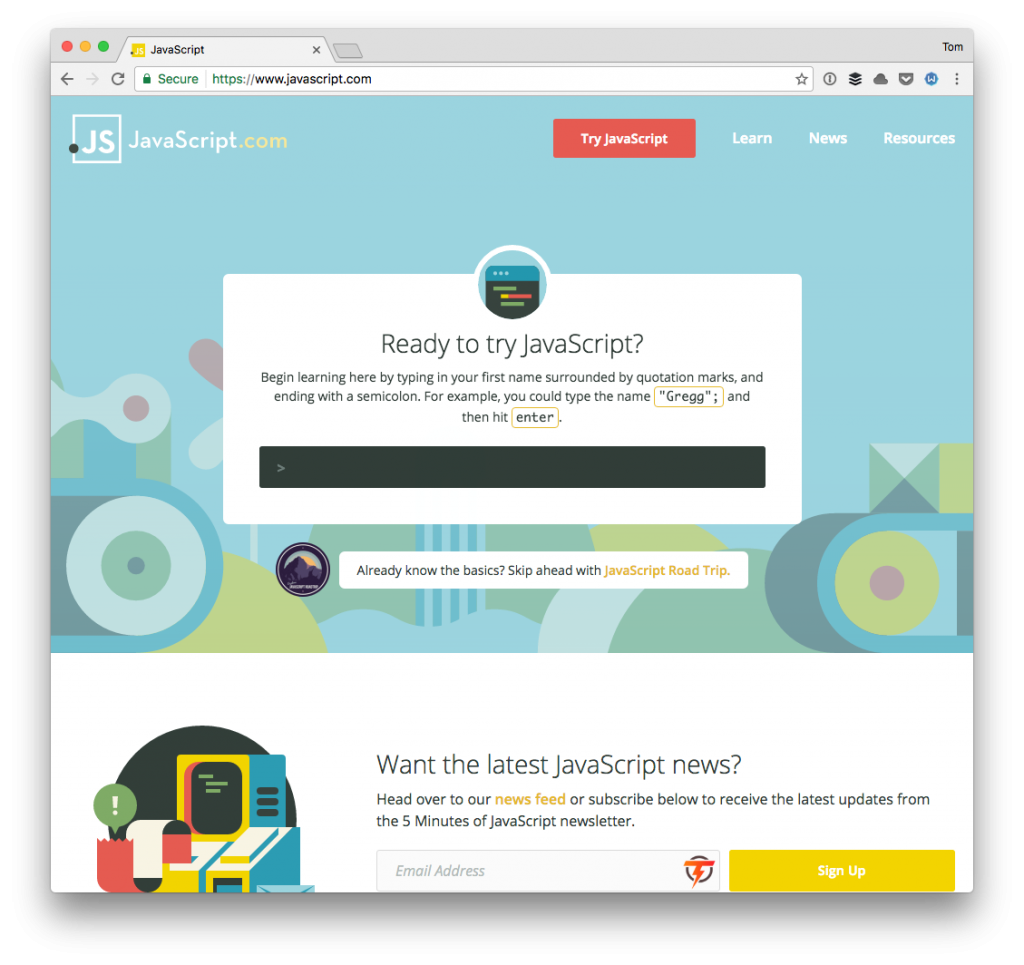When it comes to writing about learning JavaScript in 30 days or sharing a link to a resource that I know almost everyone else in the web development industry has likely heard of, it causes me to pause when writing a post about it.

I mean, why bother, right? I’ve heard of it. You’ve heard of it. So what’s the point of reiterating something we’ve already heard?
Two reasons:
- We’re one month into 2017 and, if you’re like me, you’ve adjusted some of the goals you’ve set for yourself.
- The start of a month is always a good time to begin a, ahem, month-long journey.
And with that, I’m thinking that I’m going to be going through Wes Bos‘ #JavaScript30 course throughout the month of February. (A 30-day course in the shortest month of the year. 😁 I know, right?)
Learning JavaScript (In 28-To-30 Days or So)
When I first got into web development, one of the libraries that got me hooked on JavaScript was Prototype.js.

It was bundled with Ruby on Rails which is what I was using, at the time, and made manipulating the DOM so much easier than having to deal with a lot of the idiosyncracies that comes with working with different browsers.
Then I got started in jQuery and never really looked back with one exception: I’d not taken a deep-dive into vanilla JavaScript. So I found myself sitting on top of all of these abstractions not knowing what they were doing for me under-the-hood.
And it’s not that I think everyone has to worry about digging deeper beyond what they need to do their job, it’s that I really like learning that kind of stuff on a slightly deeper level.
So I opted to learn vanilla JavaScript, and I enjoyed it. To this day, I think JavaScript: The Good Parts is one of the best books that anyone who writes JavaScript can read. I’ve always thought of it as doing to JavaScript what K&R did for C.
Fast forward a few years, and I’ve been working with WordPress for a significant amount of time. And since it comes bundled with jQuery, that’s the library I’ve been using for most of my JavaScript development.
Sure, I still try to follow the evolution of the JavaScript language – various blogs, news articles, and so on – but I’m not afraid to admit that I’m not putting into practice some of the newer features.

I suppose you could make the case that they aren’t necessary, but so could anyone who ever used an older version of any programming language. So to stay current with the latest features of the language, why not take a refresher course?
Though I still plan to pursue both React and React Native this year, I’ve opted to spend February refining my skills in vanilla JavaScript. (And perhaps, if there’s time later, jumping into ES6.)
So What?
I’ve opted to mention this here for a few reasons. Generally speaking, I think those who blog often try to write from a position of authority – which is great – but in doing so, I think we forget to share some of the things we’re doing to stay up to date.
That is, we don’t like sharing what we don’t know. And I don’t want to be that kind of person. Everyone is fine sharing what they know, but what about what they don’t know?
Yes, I like JavaScript. Yes, I’m comfortable with the language. No, I’m not as familiar with the latest and greatest features of the language. So now you know.
And this is what I’m doing for February. Maybe you will, too. If nothing else, it will give you a greater appreciate for what’s been done for you behind the scenes of your favorite framework or library.

